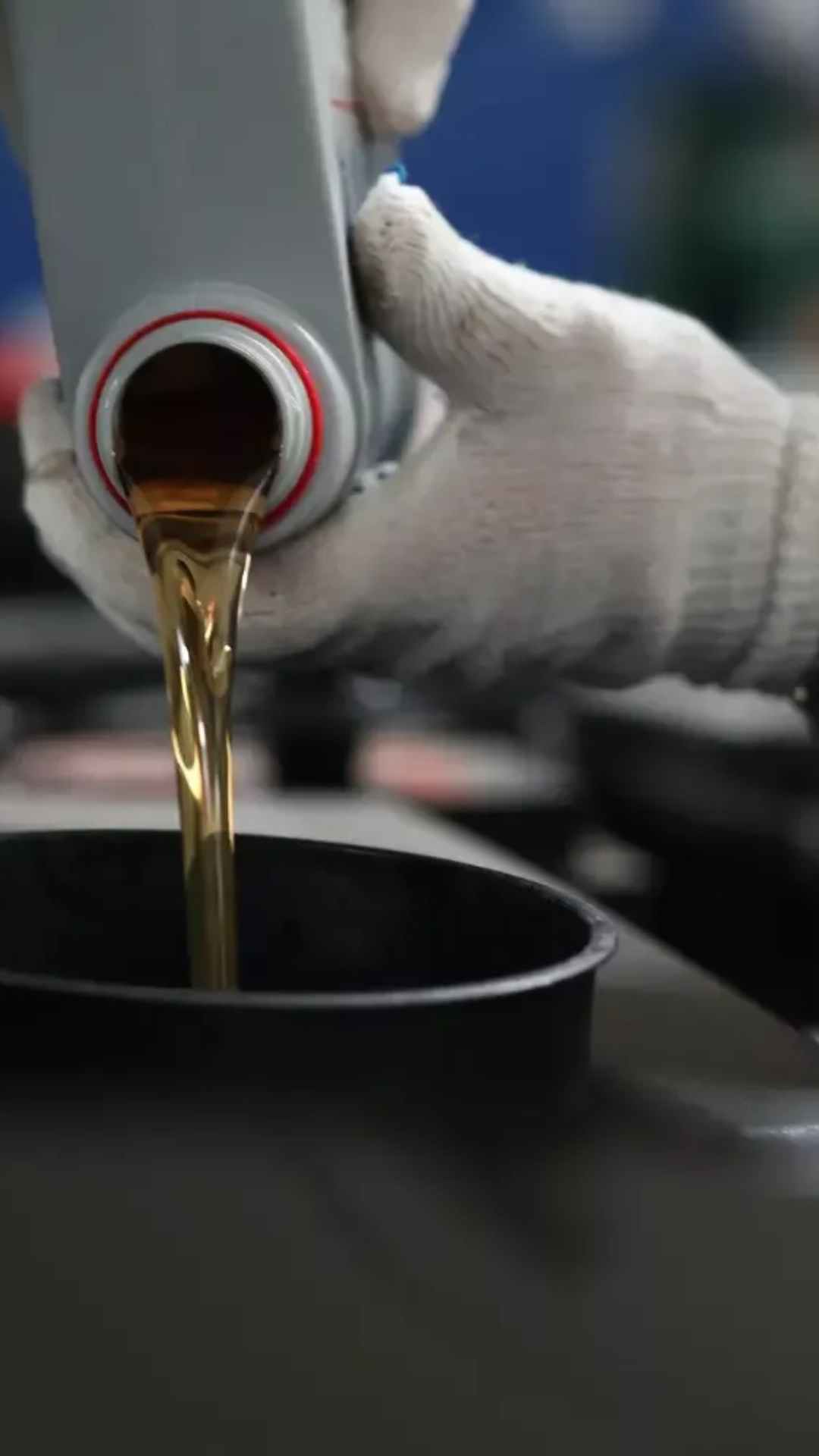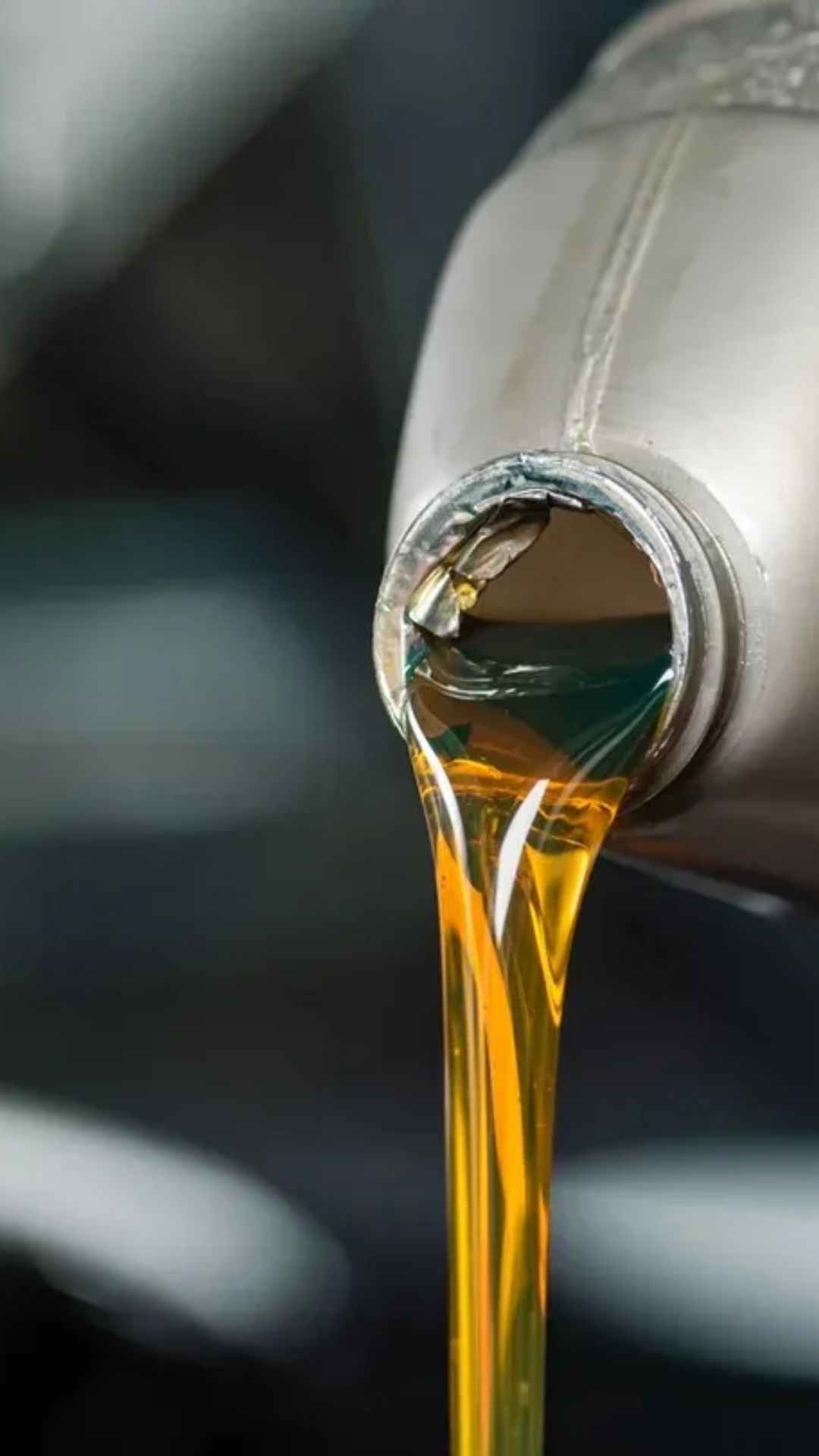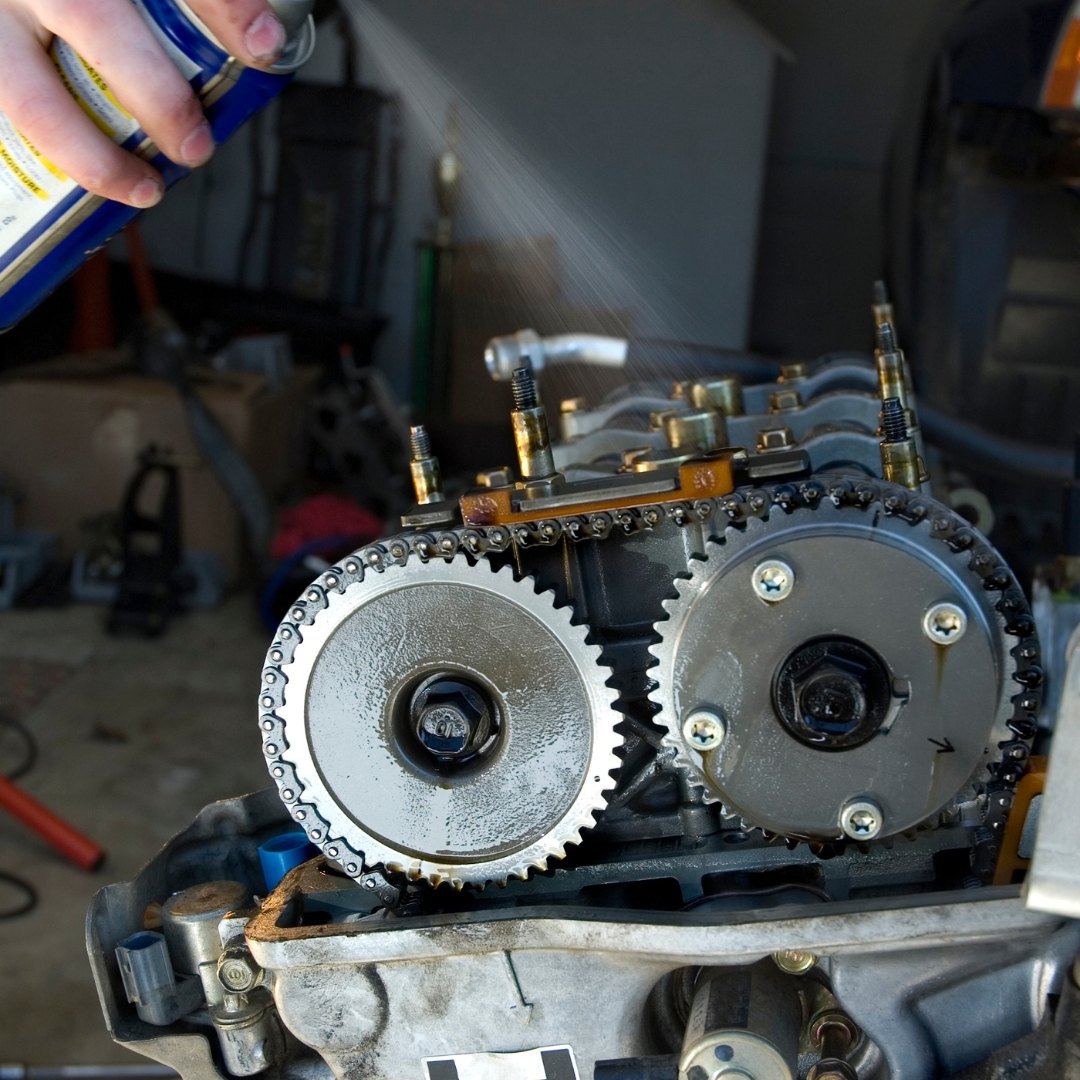Synthetic vs. Mineral Oil: Which Lubricant is Right for Your Industrial Compressor?
07/04/2025

In the heart of nearly every rotary screw air compressor is a component that is often misunderstood yet absolutely critical to its operation: the lubricant. It's easy to think of it as just "oil," but in reality, it's a highly engineered fluid designed to perform multiple demanding tasks simultaneously. As an engineer or maintenance manager, one of the key decisions you'll face is choosing between a conventional mineral-based lubricant and a modern synthetic one. The price difference can be significant, leading many to default to the lower-cost option. However, is that the right decision for the long-term health and efficiency of your equipment? As we navigate the operational demands of July 2025, making an informed choice is key to reliability. At Blackhawk Equipment, we see firsthand how the right lubricant can make all the difference, and we're here to break down the technical differences to help you decide.
More Than Just Lubrication: The Four Critical Roles of Compressor Oil
Before comparing mineral and synthetic types, it's essential to appreciate the demanding, multi-faceted role the lubricant plays in an oil-flooded rotary screw compressor. It's the lifeblood of the machine.
-
Lubricating: This is the most obvious function. The fluid forms a protective film between the precision-machined male and female rotors, as well as on critical bearings and gears, preventing metal-to-metal contact and reducing friction and wear.
-
Cooling: The act of compressing air generates an immense amount of heat. The lubricant is circulated continuously to absorb this heat from the compression chamber and rotors, carrying it away to the oil cooler where it can be dissipated. It is the primary cooling medium for the heart of the compressor.
-
Sealing: In a rotary screw compressor, the lubricant creates a vital hydraulic seal in the fine clearances between the rotors and between the rotors and the housing wall. This seal prevents air from leaking backward, ensuring the compressor achieves its rated efficiency.
-
Cleaning: The lubricant captures contaminants—such as airborne dust that gets past the inlet filter or microscopic wear particles—and carries them to the oil filter for removal, keeping the internal components clean.
Remember: A lubricant that fails at any one of these tasks can lead to decreased efficiency, overheating, and ultimately, catastrophic failure of the air end.
The Foundation: A Closer Look at Mineral Lubricants
-
What Are They?
-
Mineral-based compressor lubricants are derived from highly refined crude oil (petroleum). They are the traditional, well-established choice and have been used for decades. Their performance is enhanced by a package of additives designed to improve lubricity, inhibit rust, and reduce oxidation.
-
-
The Pros of Mineral Lubricants:
-
Lower Initial Cost: This is their most significant and appealing advantage. The price per gallon is considerably lower than that of synthetics, making them an attractive option for operations with tight initial budgets.
-
Good Material Compatibility: They are generally compatible with the common elastomers and seal materials found in most standard compressors.
-
Adequate Performance in Light-Duty Applications: For compressors that run intermittently (low duty cycle) in a clean, temperature-controlled environment, a high-quality mineral oil can provide sufficient protection.
-
-
The Cons and Limitations:
-
Shorter Lifespan: Mineral oils have a less uniform molecular structure, which makes them more susceptible to breaking down. This results in shorter drain intervals, typically ranging from 2,000 to 4,000 operating hours.
-
Lower Thermal Stability: This is their biggest weakness. At the high temperatures found inside a compressor, mineral oils oxidize more rapidly. This oxidation process leads to the formation of sludge and, more detrimentally, varnish—a hard, sticky deposit that can clog oil coolers, separators, and internal passages, causing overheating and reduced performance.
-
Higher Volatility and Carryover: They tend to "boil off" or vaporize more easily at high temperatures. This leads to higher oil consumption and increased oil carryover into the compressed air system, which can contaminate downstream equipment and processes.
-
Poor Performance in Extreme Temperatures: They can become too thick in cold weather, leading to difficult startups, and can thin out excessively in high heat, reducing their lubricating film strength.
-
The Advanced Solution: Deconstructing Synthetic Lubricants
-
What Are They?
-
Synthetic lubricants are man-made. They are created through chemical synthesis, allowing engineers to build molecules with a highly uniform size, shape, and structure. This control results in a fluid with inherently superior properties. Common base stocks include Polyalphaolefins (PAOs), Esters, and Polyalkylene Glycols (PAGs).
-
-
The Pros of Synthetic Lubricants:
-
Exceptional Thermal and Oxidative Stability: This is the key advantage. Their uniform molecular structure is far more resistant to breaking down at high temperatures. This drastically reduces the formation of sludge and varnish, keeping the compressor cleaner and running cooler.
-
Significantly Longer Lifespan: Thanks to their stability, synthetic lubricants have much longer drain intervals, often 8,000 hours or even more. While the initial cost is higher, the longer life reduces the frequency of oil changes, saving on labor, oil disposal costs, and production downtime.
-
Lower Volatility: Synthetics have a much lower tendency to evaporate, resulting in significantly less oil carryover and lower lubricant consumption over time. This means cleaner downstream air and less money spent on topping off oil levels.
-
Superior Performance Across a Wide Temperature Range: They maintain their ideal viscosity better in both extreme cold for easier startups and high heat for better protection under load.
-
Potential for Improved Energy Efficiency: The superior lubricity of some synthetic formulations can reduce internal friction, leading to minor but measurable energy savings (often 1-3%) over the life of the machine.
-
-
The Cons and Considerations:
-
Higher Initial Cost: The primary drawback is the higher purchase price per gallon.
-
Compatibility: While most common synthetics (like PAOs) are highly compatible, certain types can be aggressive towards specific seals, gaskets, or paints. It is crucial to use the correct OEM-recommended synthetic type for your machine and to properly flush the system when converting from mineral oil.
-
Making the Right Choice: Key Factors for Your Decision
The answer to "which is right?" depends on your specific operation. Here’s how to decide:
-
Operating Temperature & Environment: Is your compressor in a hot boiler room, especially during summer? Does it run under a heavy load? If so, the thermal stability of a synthetic lubricant is almost mandatory to prevent varnish and ensure reliability.
-
Annual Operating Hours: If your compressor runs 24/7 or for more than 4,000 hours per year, the longer drain intervals of a synthetic will likely provide a clear return on investment through reduced maintenance costs alone.
-
Total Cost of Ownership (TCO) Analysis: Don't just look at the price tag. Perform a simple TCO calculation. For an 8,000-hour period, you might need one synthetic oil change versus two to four mineral oil changes. Factor in the cost of the oil, filters, labor for each change, and the associated production downtime. In most industrial scenarios, the synthetic option proves to be more economical in the long run.
-
OEM Recommendations: Always begin by consulting the manufacturer's (e.g., Sullair's) specifications. Using a non-approved lubricant can compromise performance and void your warranty.
The Role of Oil Analysis: Your System's Health Report
Regardless of the lubricant you choose, a regular oil analysis program is one of the best investments you can make in your compressor's health. Sending a sample to a lab can reveal the lubricant's viscosity, oxidation level, and identify contaminants like water or dirt. Critically, it can also detect elevated levels of wear metals, giving you an early warning of potential bearing or rotor failure long before it becomes catastrophic.
Blackhawk Equipment: Your Partner in Compressor Reliability
Choosing the right lubricant is a cornerstone of a proactive maintenance strategy. At Blackhawk Equipment, we support our customers by:
-
Recommending the correct OEM-approved synthetic or mineral lubricant based on your specific compressor model, age, and operating conditions.
-
Supplying high-quality, genuine lubricants designed to maximize the performance and lifespan of your equipment.
-
Offering professional lubricant changes and oil analysis services as part of our comprehensive Preventive Maintenance agreements.
-
Providing expert diagnostics and solutions if you are already experiencing issues like overheating or varnishing.
So, synthetic vs. mineral oil: which is right for your industrial compressor? While mineral oil may suffice for light-duty, intermittent use, for the vast majority of demanding industrial applications, a high-quality synthetic lubricant is the superior choice. Its ability to resist thermal breakdown, reduce varnish formation, extend drain intervals, and lower oil consumption provides a compelling return on investment. The higher upfront cost should be viewed not as an expense, but as an investment in the long-term reliability, efficiency, and health of one of your facility's most critical assets.
Contact Blackhawk Equipment today to discuss your compressor’s specific lubricant needs. Let our experts help you select the right fluid to keep your system protected and performing at its peak.
